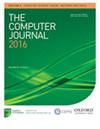防范数据中毒攻击:从分布式学习到联邦学习
IF 1.5
4区 计算机科学
Q4 COMPUTER SCIENCE, HARDWARE & ARCHITECTURE
引用次数: 4
摘要
联合学习(FL)是分布式学习(DL)的一种变体,支持在不访问来自不同来源的私有数据的情况下训练共享模型。尽管FL在保护隐私方面有好处,但其分布式性质和隐私限制使其容易受到数据中毒攻击。现有的防御,主要是为DL设计的,通常不能很好地适应FL。在本文中,我们研究了这种攻击和防御。在这样做的过程中,我们从DL的角度出发,然后考虑真实世界的FL场景,目的是探索FL中理想防御的必要条件。我们的研究表明:(i)每轮训练中使用的批量大小影响DL中防御的有效性,(ii)所研究的防御在一定程度上是有效的,并且在FL设置中受到批量大小的适度影响;(iii)非IID数据使在FL中防御数据中毒攻击变得更加困难。基于这些发现,我们讨论了在FL中抵御此类攻击的关键挑战和可能的方向。此外,我们提出检测和抑制潜在异常值(DSPO),针对FL场景中的数据中毒攻击的防御。我们的结果表明,DSPO在某些情况下优于其他防御。本文章由计算机程序翻译,如有差异,请以英文原文为准。
Defending Against Data Poisoning Attacks: From Distributed Learning to Federated Learning
Federated learning (FL), a variant of distributed learning (DL), supports the training of a shared model without accessing private data from different sources. Despite its benefits with regard to privacy preservation, FL's distributed nature and privacy constraints make it vulnerable to data poisoning attacks. Existing defenses, primarily designed for DL, are typically not well adapted to FL. In this paper, we study such attacks and defenses. In doing so, we start from the perspective of DL and then give consideration to a real-world FL scenario, with the aim being to explore the requisites of a desirable defense in FL. Our study shows that (i) the batch size used in each training round affects the effectiveness of defenses in DL, (ii) the defenses investigated are somewhat effective and moderately influenced by batch size in FL settings and (iii) the non-IID data makes it more difficult to defend against data poisoning attacks in FL. Based on the findings, we discuss the key challenges and possible directions in defending against such attacks in FL. In addition, we propose detect and suppress the potential outliers(DSPO), a defense against data poisoning attacks in FL scenarios. Our results show that DSPO outperforms other defenses in several cases.
求助全文
通过发布文献求助,成功后即可免费获取论文全文。
去求助
来源期刊

Computer Journal
工程技术-计算机:软件工程
CiteScore
3.60
自引率
7.10%
发文量
164
审稿时长
4.8 months
期刊介绍:
The Computer Journal is one of the longest-established journals serving all branches of the academic computer science community. It is currently published in four sections.
 求助内容:
求助内容: 应助结果提醒方式:
应助结果提醒方式:


